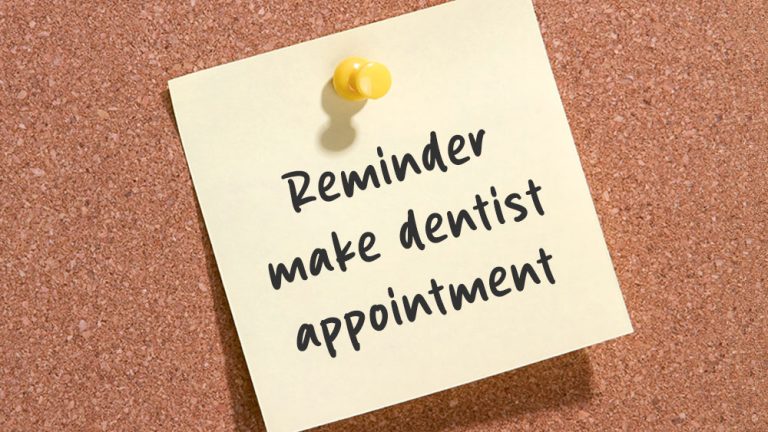
How long does it take to complete dental school?
Embarking on the journey to becoming a dentist is a significant decision that involves dedication, passion, and a clear understanding of the educational path ahead. One of the critical questions for aspiring dentists is, “How long does it take to complete dental school?” We will explore the various aspects of the dental school journey, providing a roadmap for those considering a career in dentistry.
The Journey to Becoming a Dentist
Becoming a dentist is a multifaceted process that requires careful planning and commitment. The journey typically starts with undergraduate education, progresses through standardized testing, and culminates in dental school admission. It is also important to know the different types of dentistry careers.
Key Steps:
- Undergraduate Education:
- Aspiring dentists typically begin their journey with a bachelor’s degree, often majoring in a science-related field. While specific requirements vary between dental schools, coursework usually includes biology, chemistry, physics, and mathematics.
- Dental Admission Test (DAT):
- The Dental Admission Test (DAT) is a standardized exam that assesses academic ability and scientific knowledge. Prospective dental students must perform well on the DAT to strengthen their dental school applications.
- Dental School Application and Admission:
- The application process involves submitting transcripts, letters of recommendation, and personal statements. Successful applicants are often invited for interviews before receiving acceptance into dental school.
Understanding Dental School Programs
Dental School Program Variations
Dental schools may offer different program structures to accommodate the diverse needs and preferences of students. Understanding these variations is important for making informed decisions about the educational path.
Program Types:
- Traditional Four-Year Programs:
- The traditional dental school program spans four years and includes a combination of preclinical and clinical training. This is the standard route for most dental students.
- Accelerated Programs:
- Accelerated programs compress the curriculum into a shorter timeframe, often three years. These programs are designed for highly motivated students who can handle an intensive and fast-paced learning environment.
How Long Does Dental School Take?
Timeline Breakdown
The duration of dental school varies, but a common timeline includes two main phases:
- Preclinical Years:
- The initial phase of dental school, typically spanning the first two years, focuses on building a strong foundation in basic sciences and preclinical skills. Students engage in classroom-based learning and simulated patient care activities.
- Clinical Years:
- The latter part of dental school, encompassing the final two years or more, involves clinical rotations and real patient interactions. During this phase, students apply their theoretical knowledge in hands-on patient care under the supervision of experienced faculty.
Factors Influencing Duration
Several factors can influence the time it takes to complete dental school:
- Program Type:
- Traditional vs. accelerated programs. Accelerated programs may shorten the overall duration of dental education.
- Clinical Experience:
- The amount of hands-on patient care required varies between programs. Clinical exposure is a critical component of dental education, and programs with extensive clinical requirements may have longer durations.
- Research Opportunities:
- Some students may choose to participate in research projects, which can extend the overall duration of their dental education.
- Additional Degrees:
- Pursuit of additional degrees, such as a Master’s or Ph.D., alongside the Doctor of Dental Medicine (DMD) or Doctor of Dental Surgery (DDS) degree, can extend the overall duration of dental education.
Understanding these factors can help prospective dental students make informed decisions about the program that aligns with their goals and preferences.
Dental School Curriculum Overview
Preclinical Years
The preclinical years of dental school are dedicated to laying a robust foundation in basic sciences and developing essential preclinical skills.
Curriculum Components:
- Foundational Sciences:
- Courses in anatomy, biochemistry, physiology, and dental anatomy provide the scientific knowledge necessary for understanding oral health and disease.
- Preclinical Training:
- Laboratory-based activities and simulated patient care exercises allow students to practice dental procedures in a controlled environment before interacting with actual patients.
Clinical Years
The clinical years mark the transition from theoretical learning to practical application, as students engage in real patient care under the guidance of experienced faculty.
Curriculum Components:
- Clinical Rotations:
- Students rotate through different dental specialties, gaining exposure to a diverse range of dental procedures and patient cases.
- Specialized Training:
- Advanced clinical training is provided in areas such as oral surgery, orthodontics, periodontics, and other dental specialties.
The combination of preclinical and clinical training ensures that dental graduates are well-equipped to provide comprehensive oral healthcare.
Challenges and Rewards of Dental School
While the journey through dental school is undoubtedly challenging, it is also incredibly rewarding. Understanding the potential challenges and rewards can help students navigate this transformative experience.
Challenges:
- Intensive Workload:
- Dental school demands a rigorous schedule, with a significant workload that includes coursework, labs, and clinical responsibilities. Time management and effective study strategies are essential for success.
- Clinical Competency:
- Achieving and maintaining clinical competency is a significant challenge. Students must master a wide range of dental procedures and demonstrate proficiency in patient care.
- Exams and Licensing Requirements:
- Dental school is punctuated by various exams, including written and clinical assessments. Additionally, graduates must pass licensing exams to practice dentistry independently.
Rewards:
- Patient Impact:
- One of the most gratifying aspects of being a dentist is the direct impact on patients’ lives. Providing essential oral healthcare and improving smiles contribute to overall well-being.
- Professional Fulfillment:
- Graduating from dental school marks the beginning of a fulfilling professional journey. Dentists often find satisfaction in the continuous pursuit of knowledge and skill refinement.
- Career Opportunities:
- The field of dentistry offers diverse career opportunities, including private practice, academic positions, research roles, and positions within healthcare institutions.
Understanding and embracing both the challenges and rewards is urgent for aspiring dentists as they progress through their dental education.
Life After Dental School
Internship and Residency
Upon completing dental school, some graduates choose to pursue additional training through internships or residencies. These experiences provide an opportunity to gain specialized skills and further refine clinical expertise.
Options:
- General Practice Residency (GPR):
- GPR programs offer additional training in general dentistry and may include rotations in various dental specialties. This can be particularly beneficial for graduates seeking a well-rounded clinical experience.
- Specialty Residencies:
- Graduates interested in specializing in areas such as oral surgery, orthodontics, endodontics, or periodontics can pursue specialty residencies. These programs focus on advanced training within a specific dental discipline.
Licensing Exams
After completing dental school and any additional training, graduates must successfully pass licensing exams to obtain the necessary credentials for independent practice.
Exams:
- National Board Dental Examination (NBDE):
- The NBDE is a comprehensive examination assessing fundamental knowledge in various dental subjects. Successful completion is a prerequisite for licensure.
- Clinical Board Exams:
- Clinical board exams evaluate a dentist’s ability to perform specific procedures and ensure competency in delivering patient care. These exams typically involve hands-on assessments.
Understanding the licensing requirements and successfully navigating the examination process is a key step toward practicing dentistry independently.
Frequently Asked Questions
Can I work while attending dental school?
Balancing work and dental school can be challenging due to the intensive nature of the program. The rigorous coursework, clinical responsibilities, and study requirements leave limited time for outside employment. However, some students may take on part-time positions during the preclinical years when the workload is relatively lighter.
Is dental school expensive?
The cost of dental school varies depending on the institution, location, and program type. Tuition, fees, and living expenses contribute to the overall cost. Financial aid options, scholarships, and student loan programs are available to support students in managing the financial aspects of their education.
Are there part-time dental school programs?
While rare, some dental schools offer part-time programs to accommodate students with unique circumstances. Part-time programs allow students to extend the overall duration of their dental education, providing a more flexible schedule for those with other commitments.
What is the average age of dental school students?
The average age of dental school students can vary. Some students enter dental school directly from their undergraduate programs, typically in their early to mid-20s. However, there is a growing trend of individuals pursuing dentistry as a second career, leading to a more diverse age range among dental school students.
Understanding these aspects can help prospective dental students make informed decisions about their educational journey.
Important Highlights
Embarking on the path to becoming a dentist is a transformative journey that requires dedication, perseverance, and a genuine passion for oral healthcare. While the duration of dental school varies based on program type and individual choices, the ultimate goal remains constant: to equip aspiring dentists with the knowledge, skills, and clinical competence needed for a successful career in dentistry.
As you consider the challenges, rewards, and intricacies of dental education, remember that each step contributes to your growth as a competent and compassionate dental professional. Whether you choose a traditional four-year program or an accelerated track, the journey is an opportunity to make a positive impact on the lives of your future patients and contribute to the field of oral health. Embrace the learning experience, celebrate your achievements, and look forward to the fulfilling career that awaits you in the dynamic world of dentistry.



